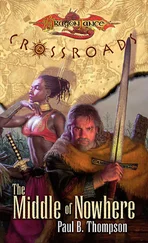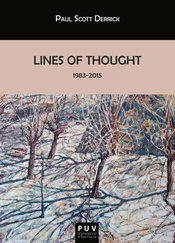Donato walks through the turnstile of the Nautical Union Guild, ignores the surprised expression on the face of the employee working on the door, walks towards the Olympic-sized swimming pool. He changes in the changing room. He does his warm-ups and stretches under the awning over the staircase you take to get to the swimming pool from the changing rooms. There are other members swimming in lanes one, four and six. He greets the employee who looks after the pools, acting as lifeguard to the members. It’s his first time here. He puts on the silver silicone swimming cap, goggles, dives into the end of lane three, he forces himself into a front crawl for the first two hundred metres and then onto his back kicking his legs, he forces himself to swim until he stops in the middle of the pool, attaches himself to one of the buoys, coughing, he’s swallowed some water. The employee who looks after the swimming pools gets up (it must be four metres deep where he is — not a place to let someone play at being ill), takes off his flip-flops, his t-shirt with the Nautical Union Guild logo on it and dives into the pool, straight into lane two. Donato is still clinging to the buoy. ‘Everything ok, kid?’ asks the club employee. ‘I’m fine … I just felt dizzy’ (he is no longer coughing, just breathing anxiously). ‘Have you been drinking, by any chance?’ he asks. ‘No. I got a bit dizzy … It was strange … I lost concentration, I felt a kind of vertigo … I started sinking as if … ’ he coughs and stops, ‘as if suddenly I didn’t know how to swim any more.’ It had been a long time since he’d gone swimming and since he had taken any risks (Donato took a risk). ‘Come on, get those goggles and that cap off so the blood can flow more easily in your head. I’ll come with you to the side,’ says the club employee. And, hanging on to the floats separating the lanes, they make their way to the side of the pool. ‘Better?’ he asks. ‘I’m a bit drowsy.’ He was stupid. ‘Can we get you over to First Aid?’ he suggests. ‘No, I just want to get out, get my clothes on and go back home.’ They go down to the changing room. The employee who looks after the swimming pool asks the employee on the door to call a taxi. They don’t have to wait long. The boy gets himself ready. The two of them walk to the entrance of the club, the employee who looks after the swimming pool asks if he has money and if he really is ok. Donato gets into the taxi, the club employee gives him a goodbye wave. Donato feels a sense of calm, a peacefulness he has never experienced before. There’s no doubt about it, he’s high on medication. The car pulls away, and he thinks that being high makes it easier to accept and understand what it’s like to be alone.
Luisa comes into the bedroom without turning on the light, she walks over to him, lies down in what little space is free on the mattress and puts her arms around him from behind. He doesn’t wake up. She notices the strong smell of chlorine in his hair. She squeezes him tighter without getting any reaction. She partially uncovers him and kisses his sweaty back (sweaty because he’s covered himself in an eiderdown on this baking hot night). She shouldn’t have come to the bedroom, being there goes against everything she had planned, but nothing matters now, she slides the palm of her hand over his body, letting the minutes pass. She wants his temperature to stick to her hands and she wants there to be no past between them; that is when she lets go of him and moves away, but at the moment she rests her hand on the floor in order to get up he pulls her back and kisses her on the mouth. She turns her back on him, but doesn’t leave the bed, her clothes and the cover are preventing their two bodies from touching. He hugs her, she doesn’t move, tears roll down her face, smear her makeup, she feels his hard-on pressing against the top of her left thigh and she lets it be. ‘I’m going with you to the airport,’ he says. ‘Please, this madness has already gone too far.’ Luisa has never been so sad. ‘But … ’ he tries to argue with her. ‘Shhh … ’ she cuts him off. ‘Mum … ’ And she insists: ‘Shhh …’
Two in the afternoon. Donato wakes up, goes down to the kitchen, fills a glass with water, drinks it and immediately spots the brown envelope in the middle of the living room. He walks over to it, picks it up off the floor. On the side that had been face down were the words: ‘TIME TO GROW UP.’ He opens it: inside there’s a two-page letter. There is an apology first. Then a set of instructions. He is to go up to her bedroom, get the suitcase that is still closed with the airline company tag attached, open it. She says in one of the lines that follow that perhaps he should start with the exercise book and then move on to the DVD, since there’s no television or Betamax video-player on which to watch the tapes that are there, nor a tape-deck to play the cassettes. There are also the two letters, one of which had been addressed to her and the other to Henrique. Everything about his biological mother and about the three-year-old him.
He opens the exercise book, reads as far as he can. He goes back to the Polaroid photograph, looks at the two of them: Maína and Paulo. Her face hidden behind the mask, the face that appeared in the edited footage on the DVD (Luisa explained in the letter that she had transferred them from the Betamax tape to a DVD in Recife (Recife as a place of transit) and then edited them to leave only the minutes in which Maína appears. If he wants to see the rest he will have to get hold of a machine for copying the tapes, which are now museum pieces) and a few drawings that are in the exercise book. His face is also in a drawing in the exercise book, but it’s any old face, there’s no way of knowing. Donato gets the computer, inserts the DVD into the drive. In her letter Luisa says the footage was recorded when Maína was a little younger than he is today. He sees her moving, smiling anxiously: he can barely keep his eyes on the monitor. She is beautiful, the most beautiful woman he has ever seen. Biological mother. Mãe. The voice he tried so hard to hear in the wooden owl. He opens his Gmail and writes to Luisa. ‘ You have no idea how much I hate you for this. ’
vagueness
He had to go to a place called Galeria do Rosário to get hold of a Sony machine (which according to the shop assistant was made in nineteen eighty-eight) and also a ten-inch colour television. He was doing the right thing because transferring the tapes to DVD would have been more expensive. He watches; he finds nothing worthwhile, except for the minutes showing the three women, his grandmother and his two aunts, the place by the roadside, where they might still be today, although he suspects not.
It wouldn’t be hard to find Paulo. In the exercise book there are the contact details for this woman called Angélica in Pelotas. One thing might lead on to another, they might meet, but Donato thinks not.
He buys a cheap tape-recorder. Paulo’s voice appears in just a few places on the cassette; it’s a considerate sort of voice. Paulo’s voice will become a kind of nightmare within his nightmares. Waking up alone at home in the middle of the night will be a sort of training for dealing with his own cowardice (while it is transforming into something else, into a duty he will have to fulfil), everything is only a question of learning. That’s something he’s good at. Paulo’s voice is outside the owl.
He walks the city. He reads the exercise book over and over again. He reads the letters that Maína left for Henrique and Luisa. It was Maína who asked Luisa not to give him the material till he was older, she was the one who asked Henrique to adopt him and never to reveal to him the way she had decided to die (he already knows, Luisa has told him in the penultimate paragraph of the letter). He studies whatever he can find in the way of books, dissertations, theses, newspaper and magazine articles about the Guarani people in the state. It takes him nearly a month. In that time, during which he doesn’t answer Luisa’s phone calls or respond to her emails, he starts feeling a nostalgic longing that, having no object, he never imagined anyone could possibly feel.
Читать дальше












